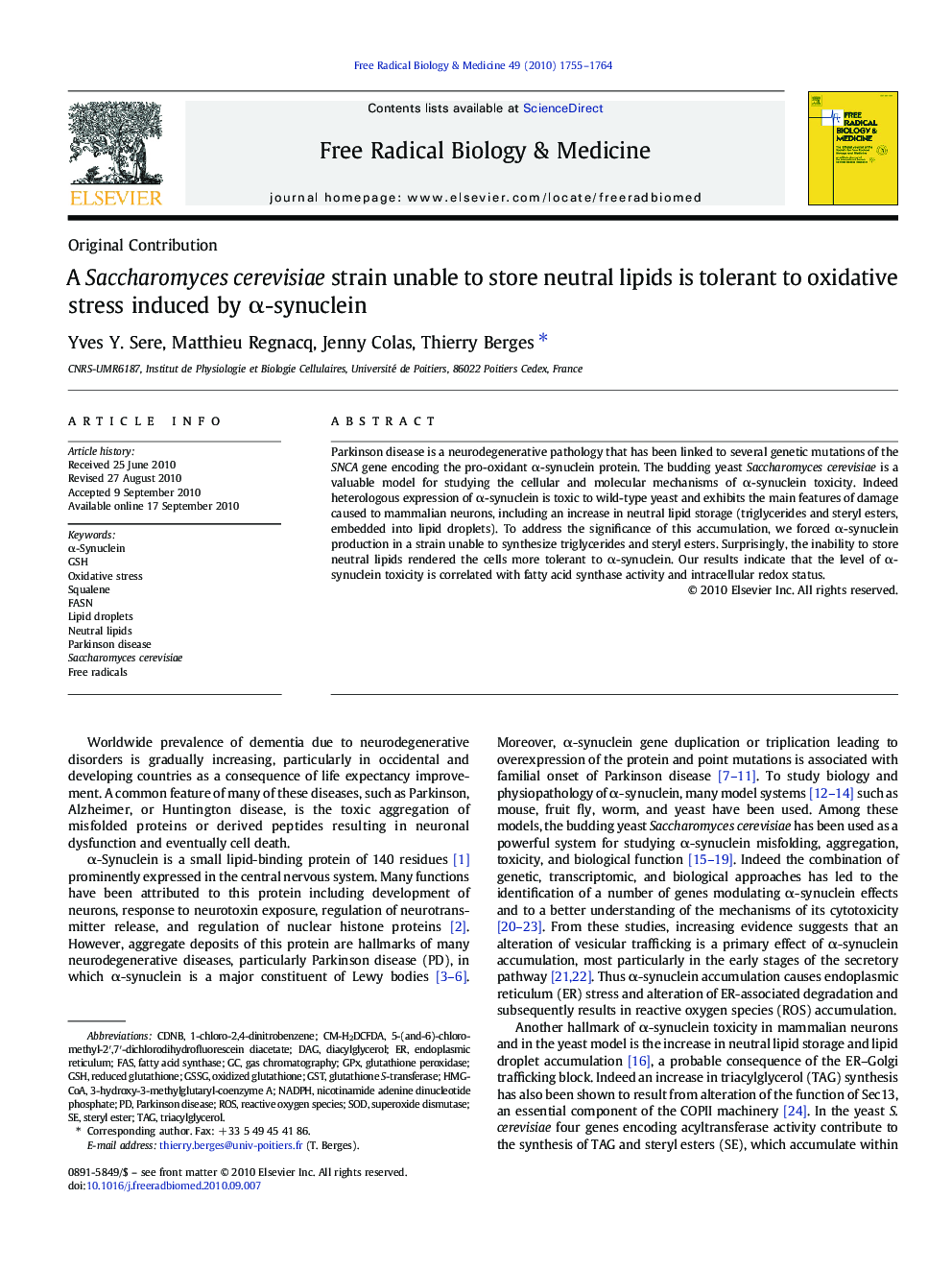| Article ID | Journal | Published Year | Pages | File Type |
|---|---|---|---|---|
| 1909472 | Free Radical Biology and Medicine | 2010 | 10 Pages |
Parkinson disease is a neurodegenerative pathology that has been linked to several genetic mutations of the SNCA gene encoding the pro-oxidant α-synuclein protein. The budding yeast Saccharomyces cerevisiae is a valuable model for studying the cellular and molecular mechanisms of α-synuclein toxicity. Indeed heterologous expression of α-synuclein is toxic to wild-type yeast and exhibits the main features of damage caused to mammalian neurons, including an increase in neutral lipid storage (triglycerides and steryl esters, embedded into lipid droplets). To address the significance of this accumulation, we forced α-synuclein production in a strain unable to synthesize triglycerides and steryl esters. Surprisingly, the inability to store neutral lipids rendered the cells more tolerant to α-synuclein. Our results indicate that the level of α-synuclein toxicity is correlated with fatty acid synthase activity and intracellular redox status.
